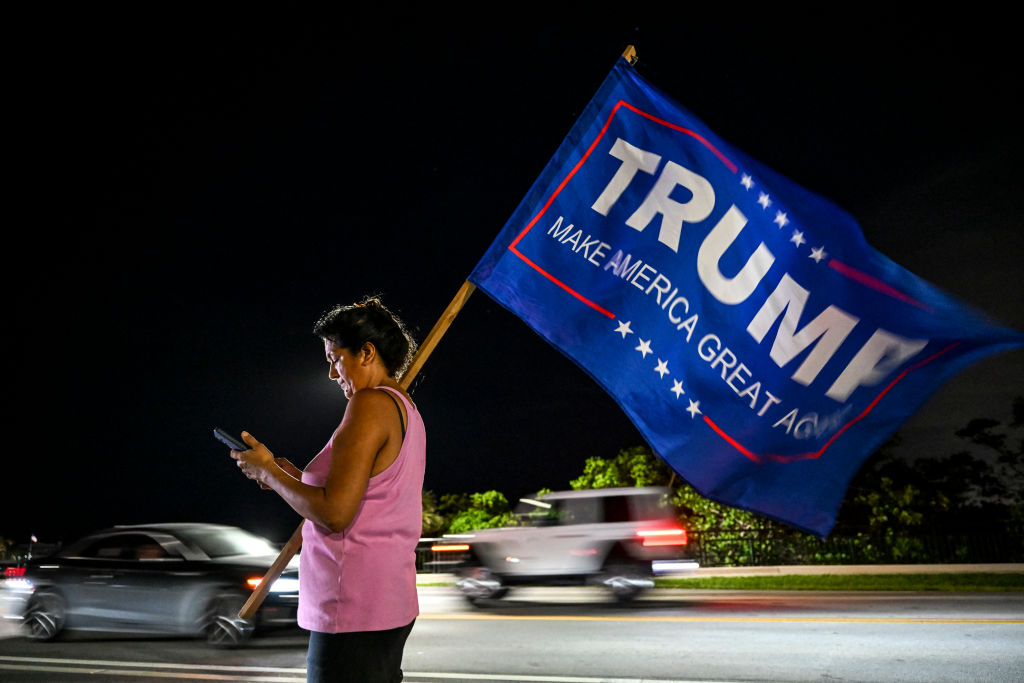Anyone who cares about democracy and the rule of law should condemn the recent assassination attempt against current candidate and former US President Donald Trump. Even, in fact especially, if that political violence targets someone who themselves has incited violence and has already done so much to undermine democracy.
I wish I could say that this assassination attempt in one of the most consequential elections in history will serve to sober the United States and galvanise efforts to halt the damaging wave of polarisation and extremist violence in America.
It won’t. We can only brace ourselves for more.
Recent polls reveal that one in four people in the United States believe that violence is justified to “save America”. The noxious forces and impulses that swirl behind the assassination attempt against Trump, the January 6 insurrection, and the plans for similar should the 2024 election not go Trump’s way, have been brewing for a long time and cannot so easily be put back into the bottle.
This grievance fuelled era see both sides of the political fray frame the other as existential threats.
When Trump was first elected, he laid out a dystopian vision of American “carnage” in his inaugural address. It was more a dirge rather than the soaring hymn that is characteristic of newly hopeful presidents-elects. The despicable act of violence at his Pennsylvania rally on Saturday evening will serve to bolster this dark vision of America. For Trump’s supporters, and would be supporters, the attack validates and justifies his vision and his strongman approach to power. For Trump’s opponents, it draws an equivalence they have always rejected. Now it won’t be so easy.
In an attempt to calm the nation, President Joe Biden said to his citizens this is “not who we are as a nation, it’s not America.” But anyone who is shocked by what happened has clearly not been paying attention. Frankly, it was only a matter of time. There has been an exponential rise in threats and actual incidents of violence against elected officials from the highest office to local school boards.
Those who say violence of this type is not part of America does not know their history. Whenever I have been asked to assess the levels of stability and threats to democracy and peace in the United States, I have equivocated. Yes, things are bad right now, I would reassure people, but just compare this time to the late 1960s, 1930s and even look further back to the American Civil War. These were all highly polarised eras, blighted by unrest and assassinations. Compared to those eras, I would say, while there has been civil strife and political violence, there have been no assassination attempts so far.
It was a grim comparison and barely a sliver of a silver lining. Now I can no longer even say that. And more polls portend more bad news. In May, almost 50 per cent of Americans believed that a second civil war was very likely in their lifetime.

We do not yet know the motive behind this attack. But in this addled information age, in many ways, it won’t matter. Key Trump allies and wannabe vice presidential candidates such as JD Vance are already laying the blame on Biden and his campaign for what they say is Democrat’s hyperventilation by framing Trump as a threat to democracy. These Trump supporters point to incendiary language, such as when Biden recently rallied a group of donors during his faltering campaign saying that “It’s time to put Trump in the bull’s eye”.
Although Trump has done more than any other US president in recent history to normalise political violence, he has always framed himself as an unlikely warrior who has been persecuted and maligned by dark forces and conspiracies. He played the victim, and now Trump clearly is the victim, and any attempts to warn against his antidemocratic tendencies and his own support for violence are compromised. This attack will likely galvanise his supporters, and the broader Republican base that may have sat out this election given his recent criminal convictions and their concerns about the January 6 insurrection, to get out the vote.
In an address to the nation, Biden said that Americans must resolve their differences at the ballot box not with bullets. “That the power to change America should always rest in the hands of the people, not in the hands of a would-be assassin.” But he also did not back away from his long standing argument that “the choice that we make in this election is going to shape the future of America and the world for decades to come.” The stakes are as high as ever.
Sometimes, egregious acts like the weekend attack serve as a balm, leading to a temporary unity where political division is set aside. It was a welcome development that Biden and former Trump shared a phone call, and both issued similar messages calling for unity. But in this grievance fuelled era when both sides of the political fray frame the other as existential threats, this assassination attempt will more likely serve as a critical marker on the current path of political violence in the United States.

